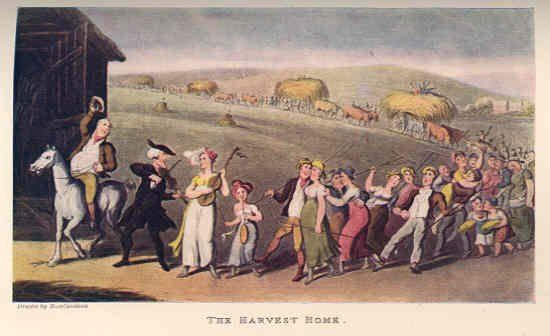Proper 22A October
5, 2014
Exodus 20:1-4, 7-9, 12-20
Psalm 19
Philippians 3:4b-14
Matthew
21:33-46
In a conversation with a Jewish friend last week, I was
reminded of what a rich time of the year this is for the Jewish High Holidays.
In these days between Rosh Hashana – New Year’s – and Yom Kippur – the day of
atonement – faithful Jews stop and take stock of what is going on in their
lives, in the world, in their lives and in the world with God. The time of the
year supports that introspection, doesn’t it: this time of harvest, of cooling
temperatures, of gathering-in, of re-grouping after a busy summer, of hunkering
down before the challenges of the winter -- and for those of us who still live
by a school calendar – before all the hard work of the coming year really gets
going.
Our gospel lesson today is about a harvest-time time of
reckoning – a little parable about God’s economy, meaning the way God organizes
God’s household. The Greek word “oikia” means house, and “oikonomia” means the
management of a house… hmm, does that tantalizing Swedish word for a fabulous
store full of household furnishings also come from the Greek word for house???
Does that mean God’s house would look like Ikea??? I somehow think not. God’s
economy is not about things you buy and sell, nor is it about looking great,
keeping up with fashion trends, or coming out on top with a bargain.
The place to start as we understand what it is to live in
God’s household, what it is to play by the rules of God’s economy, is with our
first lesson, followed up by that lyrical psalm 19. Moses delivers the ten
commandments – and by extension, the whole of the law -- and the psalmist tells
us what a delight and a joy it is to follow that law. It revives the soul,
rejoices the heart, endures for ever, and is more to be desired than gold.
But in this harvest time, let’s look at the Gospel lesson.
If part of God’s household contains a vineyard, then one of the crisis points
in the year is the time of harvest. The crop has ripened at once, and there is
not a moment to lose to get in all in. Such a crisis is fraught with
opportunity and peril. “The harvest is plentiful,” Jesus say elsewhere in this
Gospel of Matthew, “but the laborers are few.”
The prophets use the image of the vineyard to describe
sacred land, God’s land, the symbolic place where the people live in obedience
to God, to the Torah, that law of Exodus and of Psalm 19. Outside the vineyard,
beyond the fence, is the land of the unfaithful, the wicked, the disobedient,
the alien. But God is not pleased: those who were given the vineyard to tend
have squandered the opportunity. The grapes are sour, wild, useless; all will
be laid to waste, the laborers sent “to a miserable death.” All that privilege,
all that power, all those riches – all taken away from the original tenants and
given to those who know the rules of God’s economy, to people who will produce
“the fruits of the kingdom.”
Another word for “kingdom” or “reign” of God is
“commonwealth.” It came into English usage around the time of the reformation,
the 16th century, and refers to the welfare, or wealth or weal, held in common
by all the people. When we talk about the kingdom of God, or the reign of God,
we know who is on top, who is King of kings, Lord of lords. But as I have
talked about before, I find the word “commonwealth” gets to the heart of what
God has in mind for us. God has a created the world, which the people of God
hold in common. We are all stewards of this common wealth. When we think of the
vineyard, say, as a “kingdom,” our lines of responsibility or accountability
only go up, to God. But by using the word “commonwealth,” those ties reach out
across the community, as well as up to the one who has created this wonderful
world we all share.
The Gospel of Matthew is pretty specific about this parable:
the Jews have received all the blessings of God. They are God’s special people,
the follow the Torah, they are the light to the nations; they are supposed to
be an example to the world about how to live in this world we all hold in
common. And Matthew makes it pretty clear that Jesus believes the Jews have
squandered this precious gift. They have become exclusive and selfish, and
Matthew has Jesus even predict that they will be the ones to kill him.
That can be a dangerous way to read this text, after two
thousand years of Christian history. That can be an anti-Semitic reading, part
of the case used to accuse the Jews of being Christ-killers, to justify pogroms
and prejudice.
I think it is much more powerful and provocative, however,
to put ourselves in the place of those stewards: with what part of this great
commonwealth of God’s creation have we been entrusted? Are we selfish with what
we have been given? Do we let it go wild and sour, not caring how it grows?
Our Jewish friends have just ended their time of reckoning,
of reacquainting themselves with what it means to live in the household of God.
Our lessons today invite us to take a similar journey, to press on toward that
goal, toward that heavenly prize, toward that fertile vineyard and that
abundant commonwealth, that belongs to the common humanity of all the people of
God.


No comments:
Post a Comment